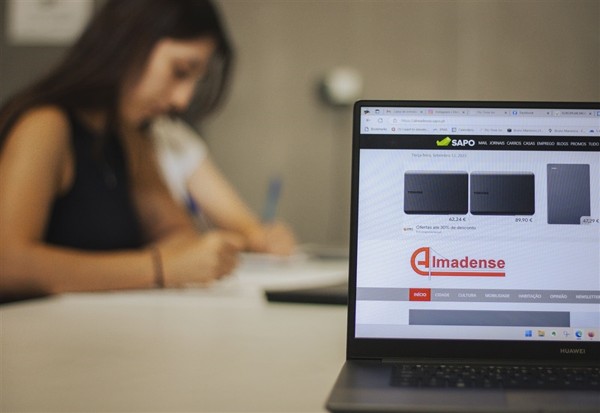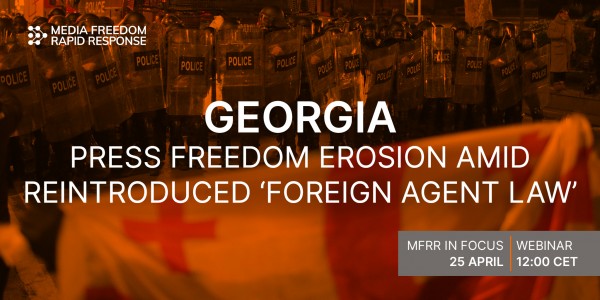From following the money flows behind fake news to using open-source intelligence tools, Kosovo journalists will learn the latest tricks in tackling disinformation at a June 16-17 workshop organised by the International Press Institute (IPI).
The third in a series held in partnership with the Kosovo branch of the Balkan Investigative Reporting Network (BIRN), the event will allow investigative journalists from across Europe to share their expertise in separating truth from lies.
“People say we’re in a post-truth age, but it’s more accurate to say we’re living in an age of infodemia,” Timothy Large, who manages the Investigative Journalism for Europe programme for IPI, said.
“With all the disinformation and misinformation swirling around, fact-based reporting has never been more important — or more difficult. This workshop will introduce journalists to international standards in verification and practical tips to do their jobs.
“They’ll also hear from half a dozen journalists from across the EU who have made it their mission to slay the disinformation dragon. They’ve devoted themselves to understanding and exposing how fake news spreads. Their insights are pure gold.”
The workshop’s first day will provide a general introduction to best practices in fact-checking and verification. Led by Claus Hesseling, a German journalist, lecturer and trainer, it will cover the following:
How to fact-check?
What are the essential questions you should have in mind when dealing with (mis)information? How do fact-checkers work? Is verification even possible?
Photo verification.
Pictures are powerful — and can be seen all around the internet. We check ways and methods of verifying photos from Tweets, Facebook posts and Instagram. Participants learn practical skills on how to deal with images.
Video verification
Confirming the authenticity of video content is a big challenge. We will use practical exercises to see how investigative journalists can deal with videos from unknown sources.
Tool time
There are plenty of free open-source intelligence (OSINT) tools on the internet to help you during difficult investigations. We look at the most useful tools out there.
The second day will consist of five discussions with prominent investigative journalists from Greece, France, Lithuania, Slovakia and Spain.
Sleepless in Slovakia
The amount of disinformation doing the rounds in Slovakia is enough to keep journalists awake at night. It has also made Slovakia the most conspiracy-prone nation among V4 countries. Miroslava Sirotnikova gives an overview of her country’s disinformation landscape and explains how journalists and members of civil society are fighting back.
Beware the bots
You’ve heard of fake news but have you heard of “computational propaganda”? This has been described as “the interaction of algorithms, automation and politics”. Kostas Zapeiropoulos, co-founder of the Mediterranean Institute for Investigative Reporting and author of “Alexander the Bot: The Twitter War for the Macedonian Soul”, shares his insights on a growing threat to democracy.
Consider the source
Rampant disinformation is a key reason why Europe is the world’s most vaccine-skeptic region. Within an amorphous online ecosystem, investigative journalist Sarah Hurtes has traced a sophisticated, organized cadre of professionals who work at a national and cross-border level to amplify their key message: that vaccines are dangerous and those who administer them are corrupt. In this session, she shares her experience of identifying the inner workings of the anti-vaccination movement in Europe.
Follow the money
If you understand the fake news business model, you’ll understand what incentivizes the dissemination of disinformation – and how to stop it in its tracks. Edgaras Savickas has taken part in a major investigation into who is financing fake news in Lithuania, Latvia and Estonia. In this session, he shares his experiences and tips from Lithuania.
Follow the data
Coronavirus may have paralysed the world, but it’s the “infodemic” that threatens to do just as much damage to society and democracy. Darren Loucaides has led a four-country investigation into how disinformation campaigns by hostile foreign actors have affected Europe. He shares his insights.
This is the final workshop in a three-part series co-organised by IPI and BIRN Kosovo, with support from the European Office in Kosovo. It is part of the Solidifying the Resilience of Kosovo’s Current and Future Journalists, an EU-funded project to restore trust in media and maintain news streams that provide objective, fact-based and professional reporting in Kosovo.
Previous workshops have featured specialists from fact-checking organisations Maldia, Teyit, Africa Check and OSINT Essentials.
See:



